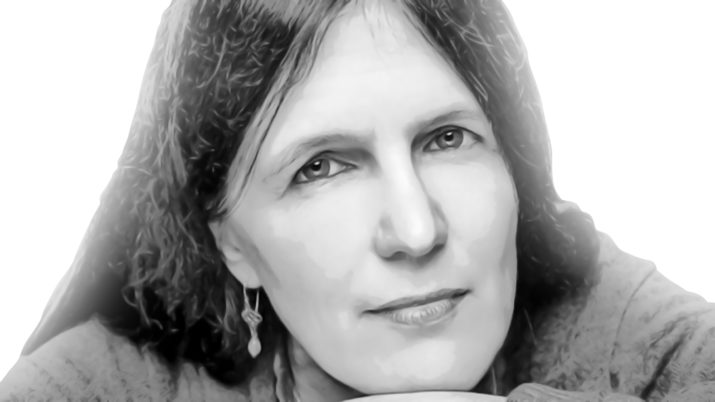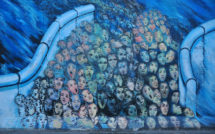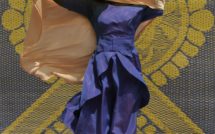

Translated from the Hebrew by Daniella Zamir.
1
The sidewalk was cleansed of the blood. Rivers of rain, water hoses, and street sweepers joined forces to scrub the surface after the last remnant was removed. Submissive, the street continued to absorb convoys of people, scraps of paper and cigarette butts hurled absentmindedly in its direction, strollers and bicycles crowding its narrow path. Children played, stumbled and fell, animals evacuated their bowels, garbage cans were tossed back after being emptied. Every so often ambulances rushed by. The fallen leaves piled up and were swept away. Who could remember that stormy night, thirty years ago, when a woman jumped to her death from her rooftop apartment in one of the few still-intact buildings? Of sound mind, with the same parsimonious strictness she used to do everything—pay bills, swim in the pool, or teach, with the same icy ruthlessness she used to drag her long finger- nails across the blackboard to force her students to stop making noise—the teacher took her life.
2
No one knew the story of Elsa Weiss. Few called her by name. Most addressed her as one would a general or a sheriff, an author- ity figure, or a role that she herself created out of thin air and performed with a devotion owed to no one, neither to her superi- ors nor to those under her supervision, but to something greater and obscure, which she herself perhaps did not fully understand. She was called as one summons the goddess of wrath, a Gorgon- teacher, a Fury, subjecting her students to a torrent of tasks, to see if they could take it, if they had the stamina, if she could count on them to hang on, as if she wanted to destroy them to ultimately gain their trust.
Elsa Weiss left no testimony behind. She refused to talk about herself, in fact, refused to discuss anything, to lecture or preach in the classroom. The sphere in which she operated did not expand to infringe on our preferences, influence our fate, shape our moral compass or consciousness. She never relayed to us a cohe- sive philosophical or political theory that could reveal something of her deep beliefs about knowledge, truth, or faith. Perhaps we could have made assumptions. We could have assumed she was not a woman of faith, that she didn’t keep kosher or observe the Shabbat. Her anger wasn’t that of a religious person. Or perhaps the opposite was true, despite every fiber of her being shouting defiance. If there was anything religious about her, it manifested in the zeal and extreme fervor with which she performed her tasks, in the ardent belief that accompanied her actions. We could have said that she gave her heart and soul, but what she really gave was something else.
A single photograph, capturing her portrait more or less in her fifties—a rare passport photo taken about two decades after her arrival in Israel—traveled through all the yearbooks, as if it too carried the same consuming quality that seeks to make room for something else, something that isn’t a message or a vision, some- thing that lends this word, teacher, its very meaning. Her face was a mirror of her life. It bore the pride and severity of someone who rarely talks to another soul, the crushing, tormented face of a Madonna and priestess, once seething with existential angst but now dulled into a blank mask that made you avert your gaze. It was impossible to linger on her face without feeling unsettled.
Michal Ben-Naftali was born in Tel Aviv in 1963. A writer, translator, and editor, she has published collections of essays, a novella, a memoir, and a novel, as well as many articles on literature, philosophy, and art, in Israel and abroad. Her translations from French to Hebrew include works by Jacques Derrida, André Breton, Marina Tsvetaeva, Maurice Blanchot, Julia Kristeva, Esther Orner, and Annie Ernaux. She has received the Prime Minister’s Prize (2007) and the Haaretz prize for Best Literary Essay of the Year (2008). Her novel, The Teacher, won the 2016 Sapir Prize.
Daniella Zamir lives in Tel-Aviv, where she works as a literary translator. She obtained her bachelor’s degree in literature from Tel Aviv University, and her master’s degree in creative writing from City University in London.
This excerpt of The Teacher is published by permission of Open Letter Books. Copyright © Keter Publishing House. Translation copyright © Michal Ben-Naftali, 2019
Published on January 16, 2020.




